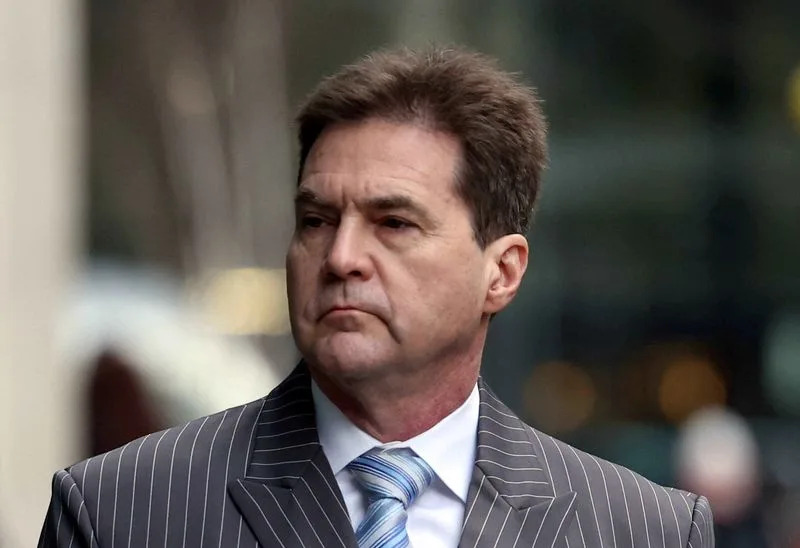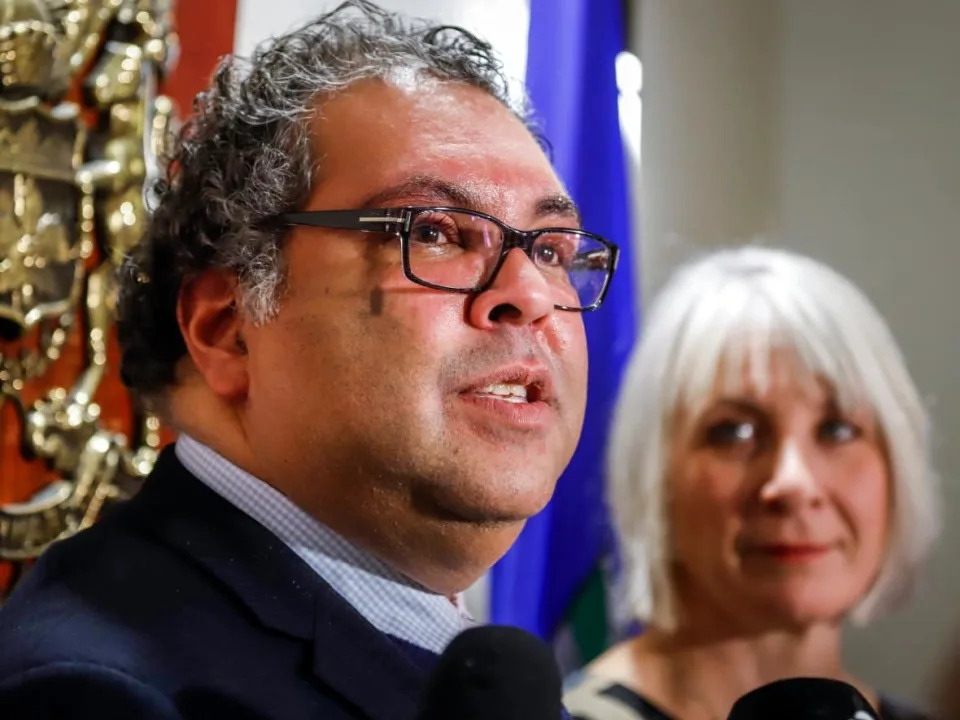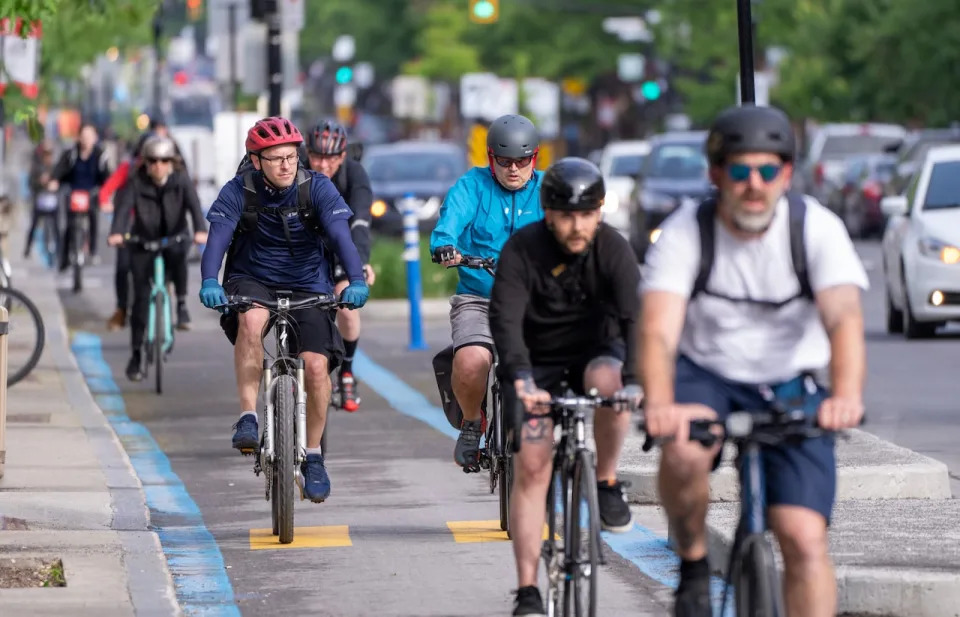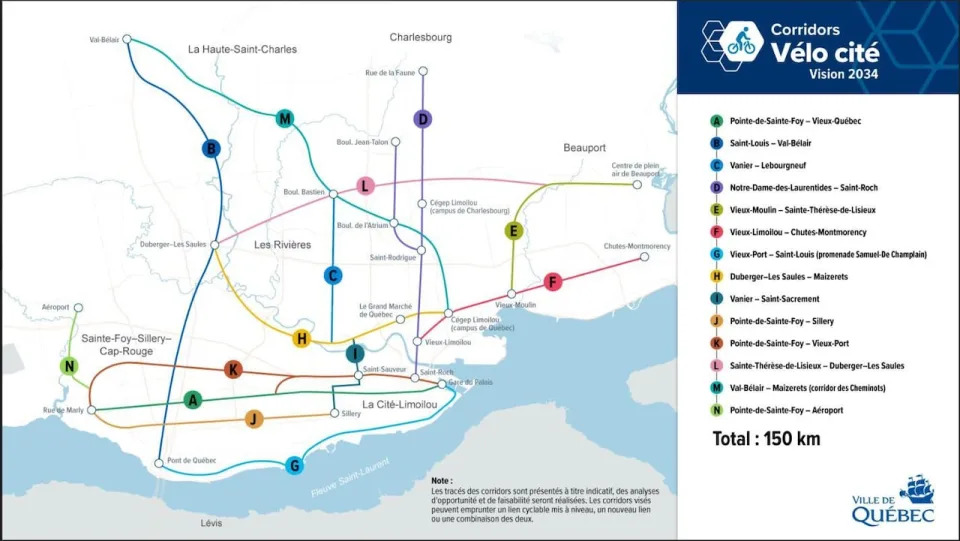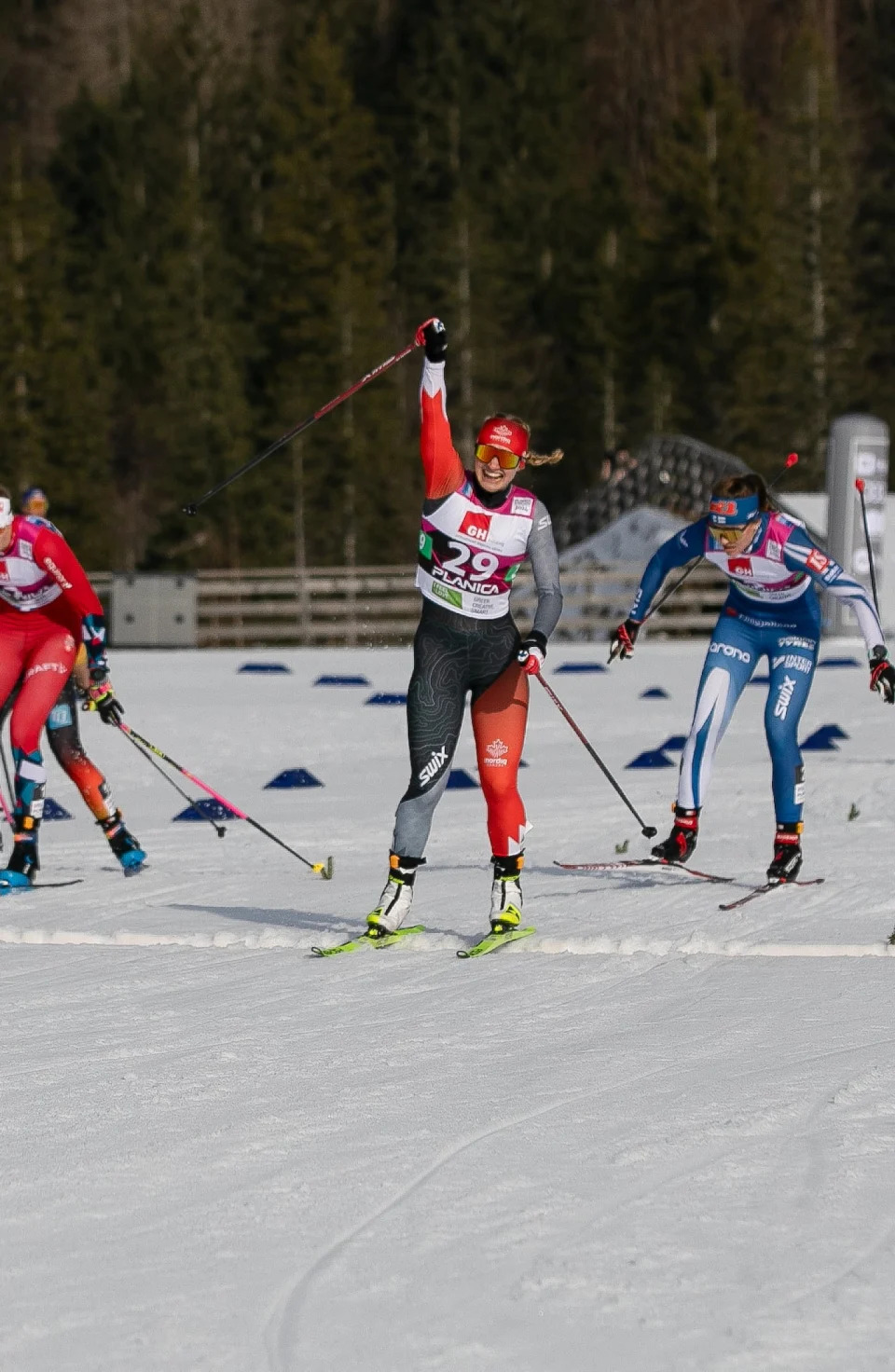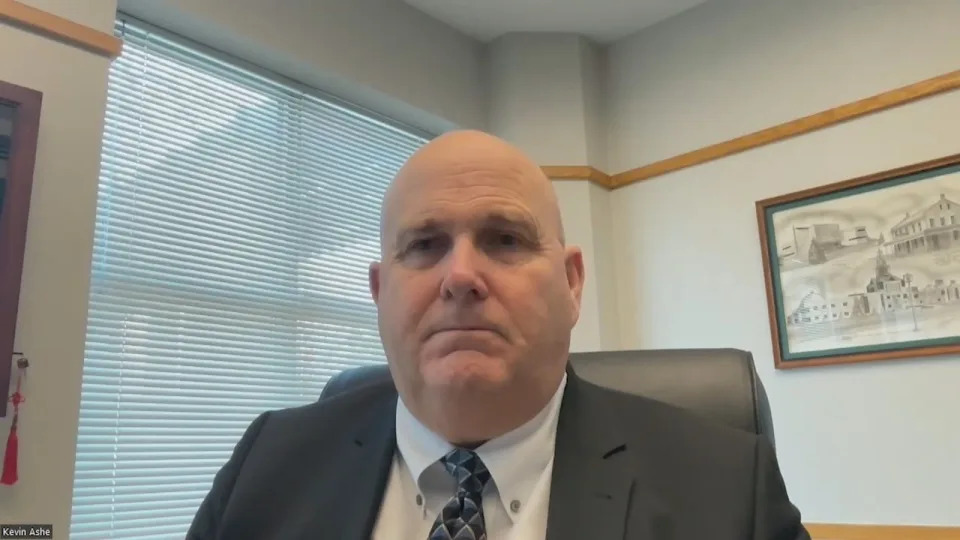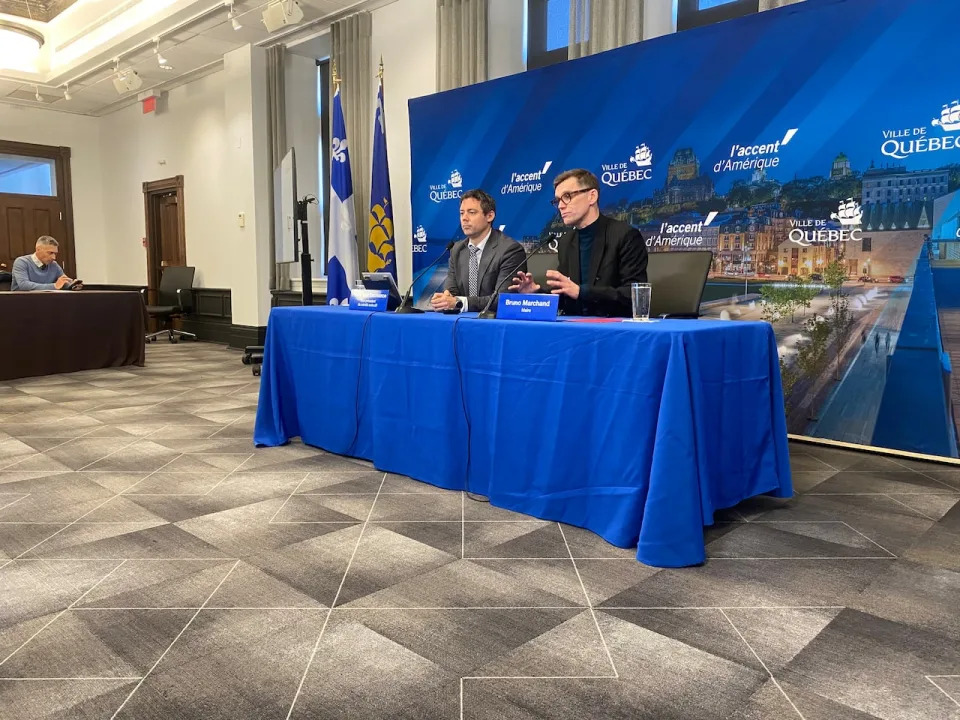
Pierre-Luc Lachance and Bruno Marchand presented the city's plan for the 150-kilometre cycling network at a news conference on Tuesday at city hall. (Alexandre Vallée-Roy/Radio-Canada)
Network will be for 'cyclists of all kinds': Mayor
Mayor Marchand says the goal is to offer choice, which will be a "win for all commuters on the road."
"To ensure that people can use this means [of transportation] it takes security and it requires comfort and that's what we're moving toward. The role of our city is not to force citizens or say we will choose for you," said Marchand.
"The role we were given as politicians was to offer choices."
Following the construction of the first 90-kilometre network, the remaining 40 per cent of the cycling network will be made up of more complex projects, requiring heavier work, which will be completed by 2034.
He says right now, many people still take their cars, even if their destination is within five kilometres.
"It's not our citizens fault. We're not throwing blame on them. It's the contrary. We are saying to them we will create a city that will allow them to — should they want to — move around in a comfortable manner," said Marchand.
Councillor and vice-president of the executive committee of Quebec City Pierre-Luc Lachance insists that the cycling network will be for "cyclists of all kinds," not just those "with bikes costing several thousand dollars."
"We're focusing on people who go to the library, children who will be able to go to school [by bike]," said Lachance.
The municipal administration will announce at a later date which sections will be developed in 2024 but confirmed its intention to start with the corridor linking Charlesbourg to downtown, which was announced in December. This path will be constructed gradually, in six sections from 2024 to 2026.
Not 'a war on cars,' mayor insists
The city says the choice of corridors is based on analyses of active mobility needs. Feasibility studies will be carried out for each of the various paths in the network and the city says citizens and local stakeholders will be invited to participate to ensure that the project is carried out in a way that reflects the realities of the local population.
Marchand says this project is not "a war on cars" but he does not have information about how existing roadways or lanes will be affected by the cycling network.
"The goal is not to remove lanes and the goal is also not to say we won't get rid of them," said Marchand. "It's to say we will find the best route to maximize its use."
Following the news conference, Stevens Mélançon of Équipe Priorité Québec said there are still details missing.
"The parking lots, the impact on the streets, the impact on everything [relating to] the environment, the routes," he said. "The intention may be good, but there are a lot of unknowns.".
Jackie Smith, a municipal councillor and the leader of Transition Quebec, says this project will complement the public transport network.
"It was essential to have a long-term vision of a network covering the entire territory, and this has now been achieved," said Smith in a statement.
"There's no doubt in my mind that with this infrastructure, the number of four-season cyclists in Quebec City will grow rapidly, and the whole community will benefit."


